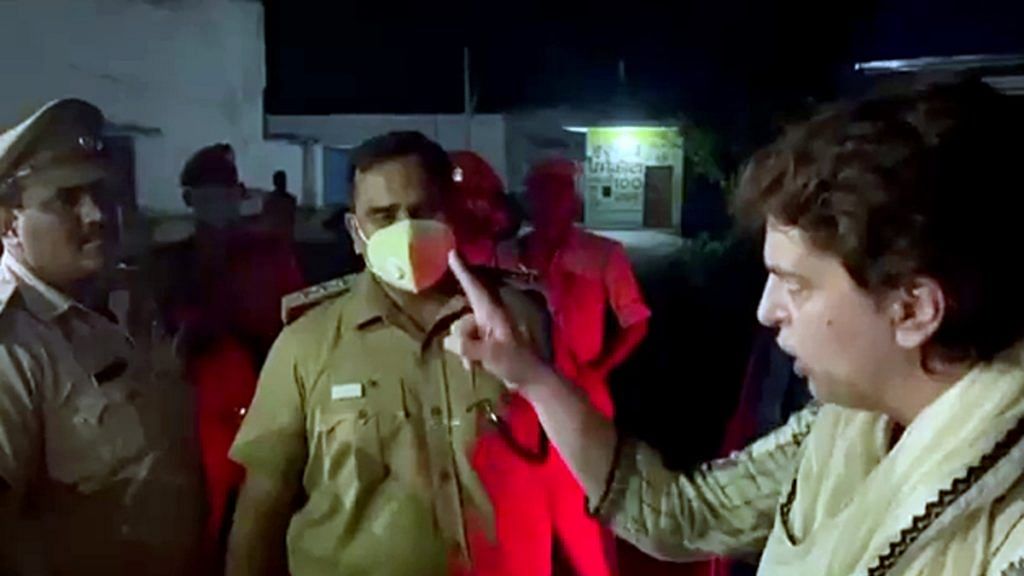New Delhi: The Uttar Pradesh Police formally arrested Congress general secretary Priyanka Gandhi Vadra and at least 10 others Tuesday evening, after detaining them for over 30 hours in Sitapur. The move came in a bid to “prevent the commission of cognizable offences”.
The Congress leader and others were detained Monday on their way to Lakhimpur Kheri, where eight people, including four farmers, died in clashes Sunday, following violence after a convoy of three SUVs hit a group of protesting farmers. One of the SUVs was owned by Ashish Mishra, the son of Union Minister of State for Home Ajay Mishra Teni.
In an interview to NDTV Monday from the guest house where she was kept in custody, Gandhi said the police initially detained her for violating section 144 (unlawful assembly of more than four people) of the Indian Penal Code. But she was told later that her arrest was under Section 151 (prevention of commission of cognizable offences) of the Code of Criminal Procedure (CrPC).
However, the Congress leader was given a formal arrest warrant only Tuesday evening.
Here’s a look at what Section 151 of the CrPC says.
Also read: Pain, anger in Lakhimpur Kheri as dead farmers’ kin cry ‘cold-blooded murder, Yogi’s gunda raj’
The law used in the case
According to Indian law search engine Indian Kanoon, Section 151 of the CrPC states: “A police officer knowing of a design to commit any cognizable offence may arrest, without orders from a Magistrate and without a warrant, the person so designing, if it appears to such officer that the commission of the offence cannot be otherwise prevented.”
Section 151 (2) states that any person arrested under this law cannot be detained in custody for more than 24 hours from the time of arrest “unless his further detention is required or authorised under any other provisions of this Code or of any other law for the time being in force”.
The CrPC defines a “cognizable offence” as an offence where a police officer can make an arrest with a warrant according to the First Schedule or “under any other law for the time being in force”.
Examples of a cognizable offence, which are usually grave in nature, include murder, rape, kidnapping, dowry death, theft, waging or attempting to wage war or abetting the waging of war against the Government of India, criminal breach of trust and unnatural offences.
In case of a cognizable offence, the police must register an FIR according to Section 154 of the CrPC.
(Edited by Amit Upadhyaya)
Also read: Drama after deaths in Lakhimpur Kheri — how UP cops stopped opposition from reaching spot
